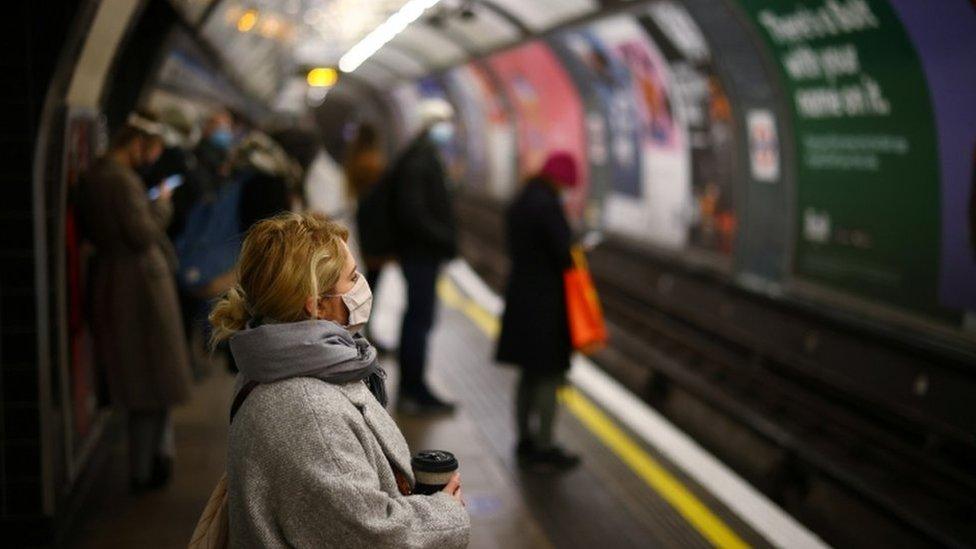Covid: Infections levelling off in some areas - scientist
- Published
- comments
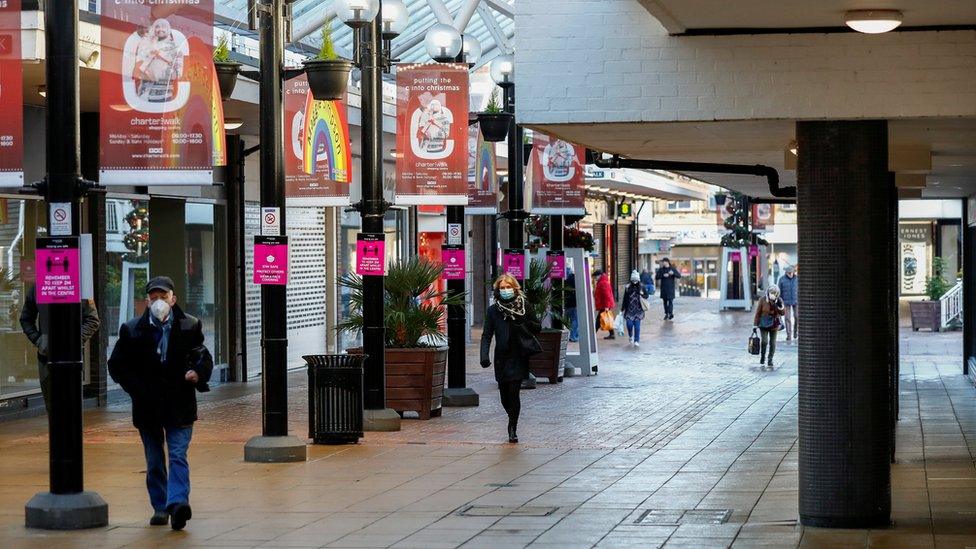
The coronavirus growth rate is slowing in the UK and the number of infections is starting to level off in some areas, a top scientist has said.
Prof Neil Ferguson told the BBC that in some NHS regions there is a "sign of plateauing" in cases and hospital admissions.
But he warned the overall death toll would exceed 100,000.
On Wednesday, the UK saw its biggest daily death figure since the start of the pandemic, with 1,564 deaths.
It has taken the total number of deaths by that measure to 84,767. There were also 47,525 new cases.
It comes after Prime Minister Boris Johnson said the national lockdown measures were "starting to show signs of some effect", but it was early days and urged people to abide by the rules.
People in England are required to stay at home and only go out for limited reasons, such as for food shopping, exercise, or work if they cannot do so from home.
Similar measures are in place across much of Scotland, Wales and Northern Ireland.
Prof Ferguson, an epidemiologist at Imperial College London whose modelling led to the first lockdown in March, told BBC Radio 4's Today programme it was "much too early" to say when the number of cases would come down.
But he said: "It looks like in London in particular and a couple of other regions in the South East and East of England, hospital admissions may even have plateaued.
"It has to be said this is not seen everywhere - both case numbers and hospital admissions are going up in many other areas, but overall at a national level we are seeing the rate of growth slow."
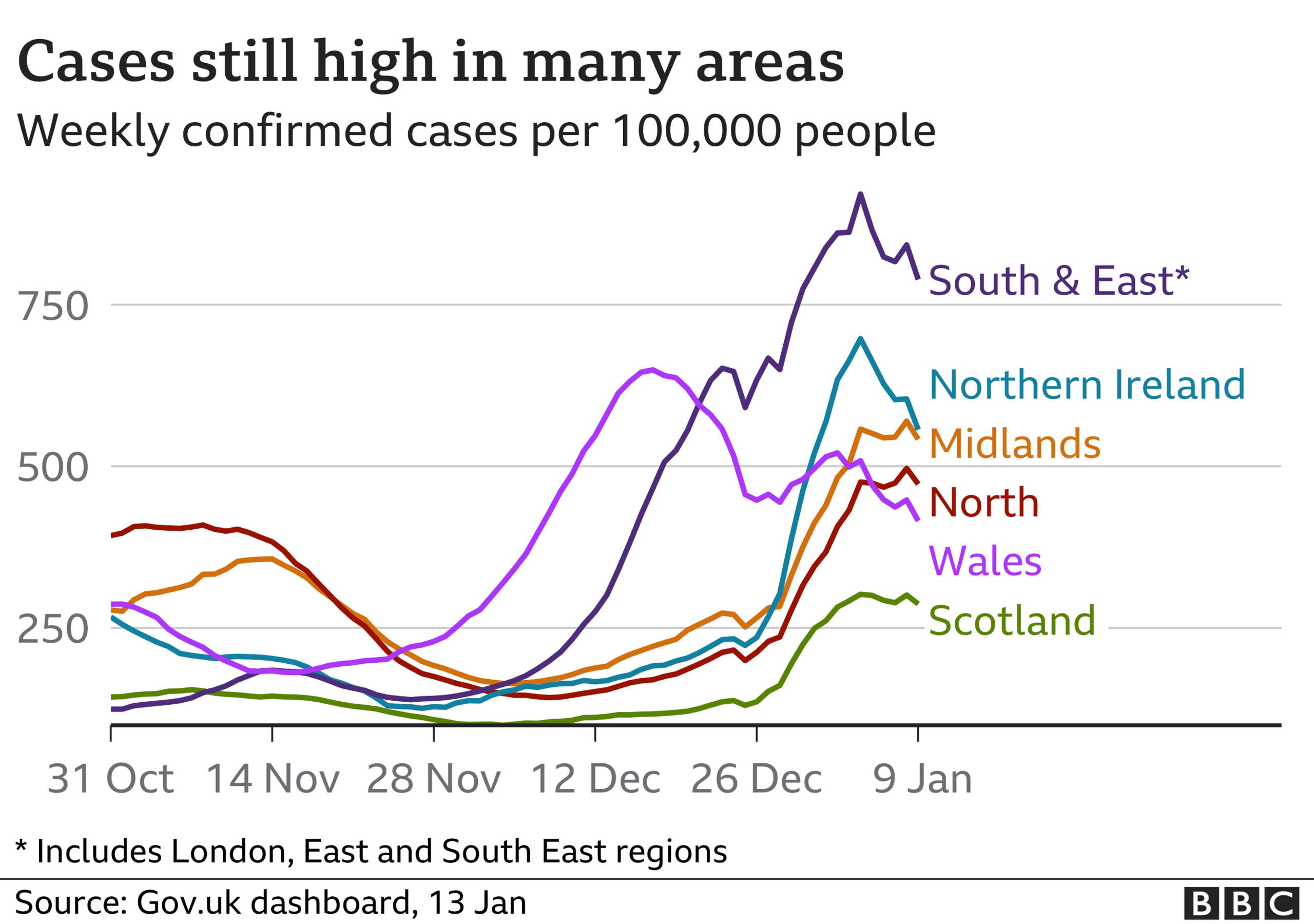
Prof Ferguson added: "I would hope the hospital admissions might plateau… sometime in the next week, but hospital bed occupancy may continue to rise slowly for up to two weeks."
He warned the overall death toll would be "well over 100,000", adding "there's nothing we can do about that now".
Prof Ferguson added Covid restrictions could be in place for many months to come, adding the new variant's increased transmissibility would mean relaxation of the rules will be a "gradual process to the autumn".
Home Secretary Priti Patel said on Thursday that the government will not be introducing tougher social distancing rules "today or tomorrow" and insisted that ministers are focusing on increasing enforcement of the current restrictions.
Asked about speculation further measures could include a three-metre social distancing rule or a requirement to wear masks outside, she told ITV's This Morning: "This isn't about new rules coming in - we're going to stick with enforcing the current measures."
Meanwhile, a major study led by Public Health England has shown most people who have had Covid-19 are protected from catching it again for at least five months.
Past infection was linked to an 83% lower risk of getting the virus, compared with those who had never had Covid-19, scientists found.
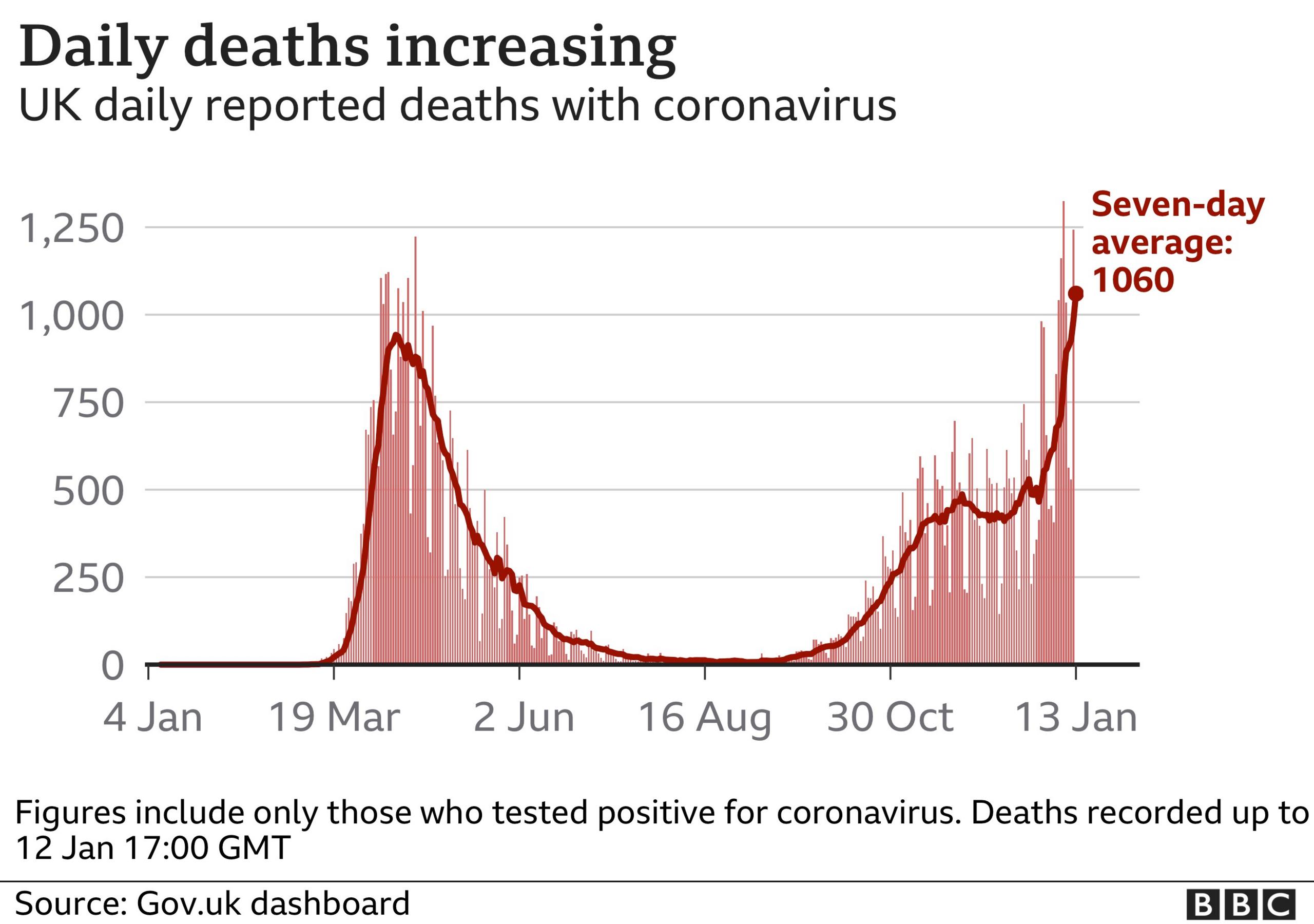
Prof Susan Hopkins, who led the study, told BBC Radio 4's Today programme the finding "doesn't eliminate" the risk of people catching Covid-19 again, and infecting others.
She said: "We found people with very high amounts of virus in their nose and throat swabs, that would easily be in the range which would cause levels of transmission to other individuals."
Prof Hopkins said she hoped that after Easter, "we will start to see reduced infection rates, as we did at that time last year" and the number of people who have been vaccinated at a "very high level".
The UK is continuing efforts to ramp up the rollout of the Covid vaccine, with the prime minister saying that Covid vaccinations will be offered 24 hours a day, seven days a week as soon as supply allows.
Health Secretary Matt Hancock tweeted on Thursday, external to say that "three million vaccines have now been administered" in the UK.
On Thursday, NHS England published a breakdown of vaccinations by age and region, external for the first time.
Mr Johnson told the Commons Liaison Committee on Wednesday that he was "concerned" about a new Covid variant that is believed to have emerged in Brazil and said that the UK was taking steps to ensure it is not brought into the UK.
A Downing Street spokesman said ministers met this morning to discuss "urgent measures to reduce the potential spread to the UK of the Brazilian variant".
They could include a ban on flights from Brazil. Arrivals from Brazil already have to self-isolate for 10 days.

LOOK-UP TOOL: How many cases in your area?
LOCKDOWN LOOK-UP: The rules in your area
TESTING: How do I get a virus test?

Meanwhile, the Deputy Scottish First Minister John Swinney told BBC Breakfast "the virus is not accelerating as fast as it was" in Scotland.
He said "there are some early signs of optimism" but emphasised people should follow all guidance as the "virus is still at a very strong level".
In other developments:
A record total of 4.46m people were on the waiting list for non-urgent surgery in England at the end of November last year, according to NHS England figures
Some High Street pharmacies in England will start vaccinating people from priority groups on Thursday, with 200 providing jabs in the next two weeks
Pre-departure Covid testing will now be required for everyone travelling to England from 04:00 GMT on Monday. The rules had been due to come into force on Friday, but the government said people needed time "to prepare"
People needing to travel by rail during lockdown are being urged to double-check train times, as services in England are being reduced


Related topics
- Published14 January 2021
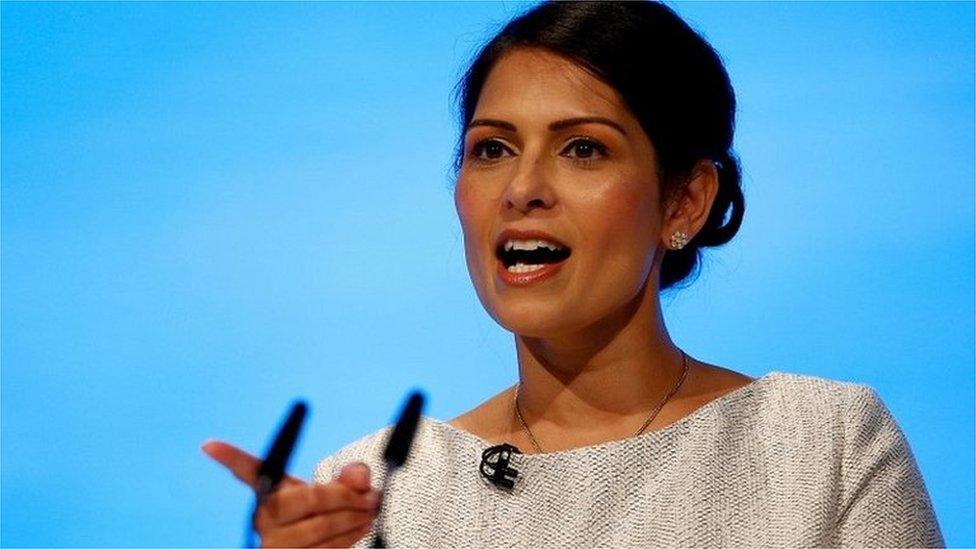
- Published14 January 2021
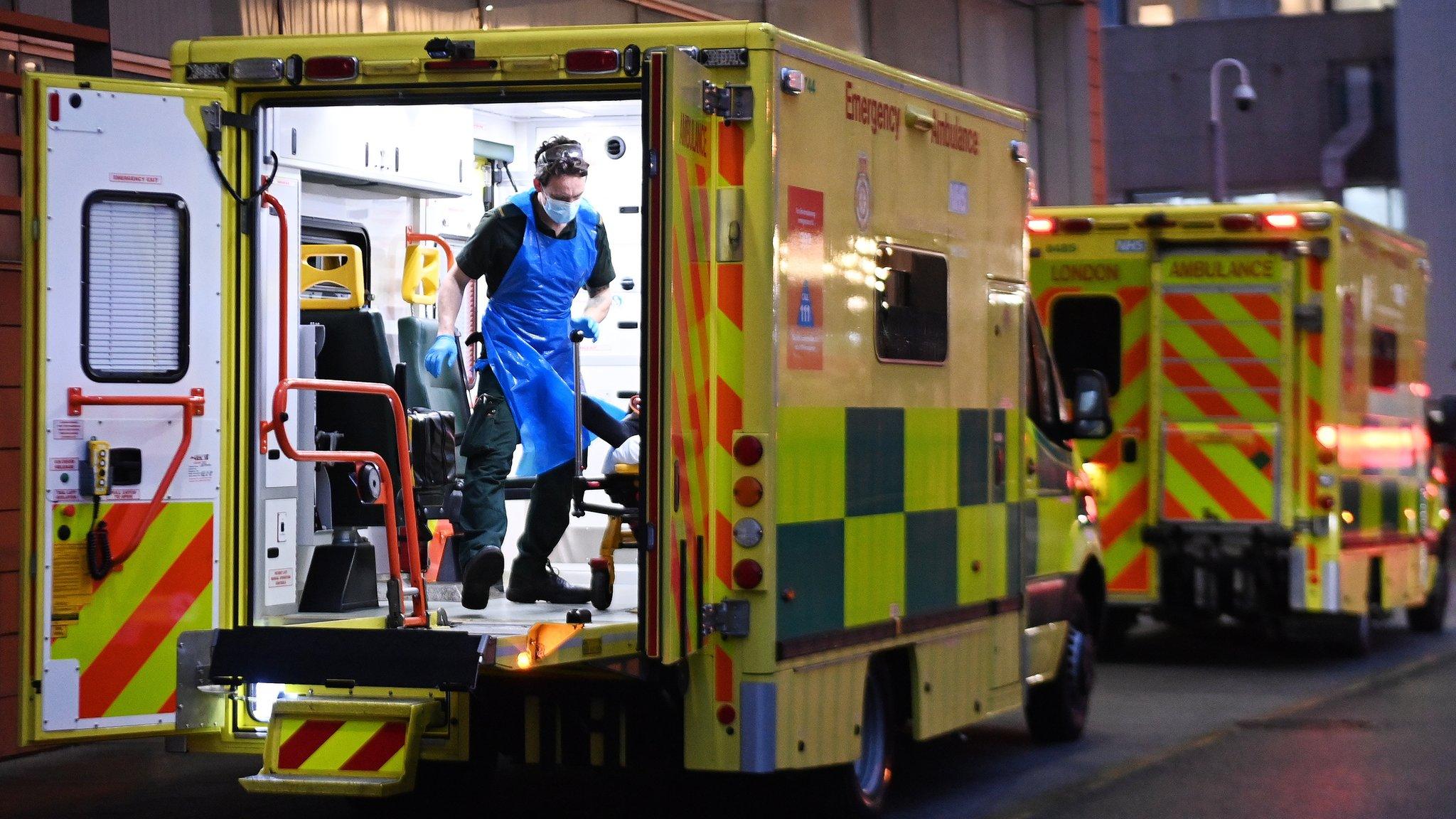
- Published14 January 2021
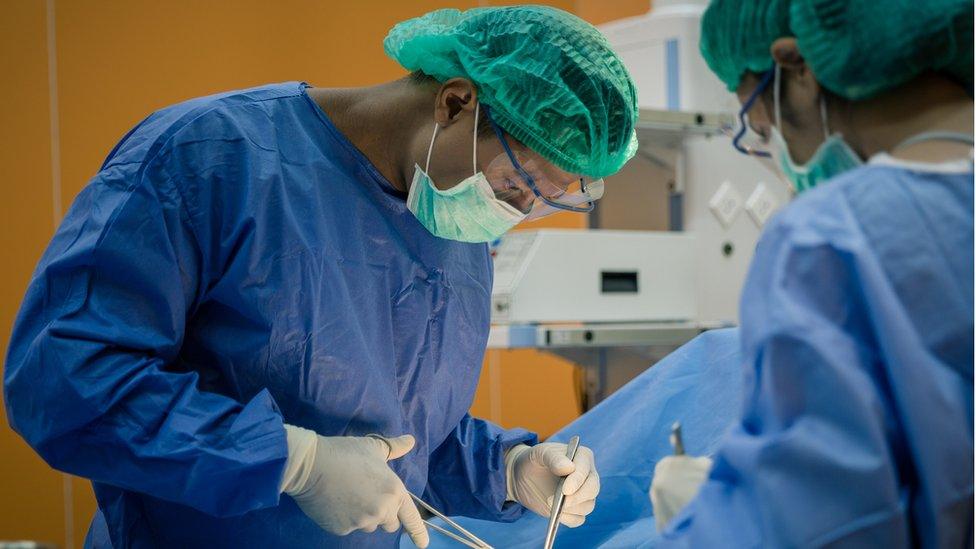
- Published14 January 2021
